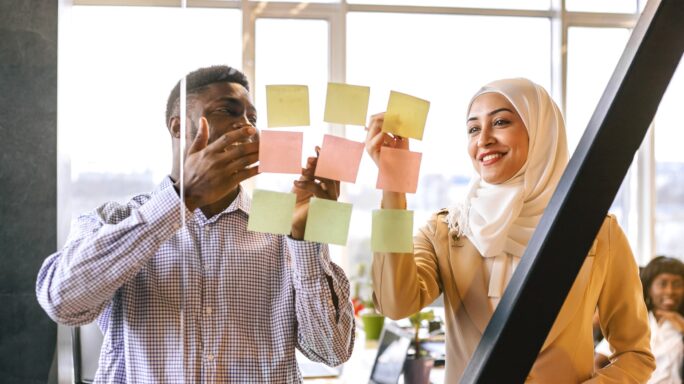People & Leadership
Three companies using gamification to complement HR strategies
Gamification stubbornly remains in every year’s ‘top trends to watch' list. Is it revolutionizing HR in organizations today?

How prolific is take up of gamification in HR? Does it help HR and People leaders to solve real business problems? Has it changed the HR and People function in the way that some predicted?
These are all questions we’ve previously explored. Gamification is often quoted as an example of modern People strategies, but today, has it become commoditised? Is it now embedded and deployed to enhance, rather than radically transform, the HR landscape.
What is gamification in HR?
Gamification is about incentivising decision-making.
However gamifying complex or arduous tasks isn’t purely to make them fun, it’s been shown to produce many benefits. As well as increasing engagement, it can improve both physical and mental skills.
In HR, it’s especially useful for increasing the effectiveness of processes such as training and onboarding, by turning them into interactive experiences.
A staggering 83% of employees said they felt motivated when their training was gamified, compared to 28% who felt motivated doing non-gamified training.
However, just 12% of 500 HR leaders Sage People polled in ‘The changing face of HR’ research report said they use gamification in their organisation today.
We take a look at how three companies are using it, to find out more about its value in the world of work today.
Free research report: The changing face of HR
Seismic shifts in the way organisations operate, work, and manage their people are occurring. We surveyed 500+ HR leaders to discover how they are responding.
Uncover insights on how to stay ahead and transform HR from a process focused function to a people driven business.

KPMG gamified its recruitment process to incentivise applicants from diverse backgrounds
Knowing that online aptitude tests can be daunting, consultancy firm KPMG took a more novel approach. They created their own mobile app – KPMG Ready – to provide psychometric assessments in a more intuitive way.
The tests were meticulously developed by game developers to bring out the finest nuances of applicants’ approaches to challenges. At first glance, it seems like any other mobile game, with colourful graphics, sound effects and a score in the top corner – but is secretly keeping track of every one of the applicant’s decisions.
KPMG receives an assessment score within 30 seconds of an applicant completing the game, letting them know instantly whether they are a suitable candidate. They describe their recruitment app as “an opportunity [for applicants] to showcase their unique strengths by completing interactive, skill-testing challenges.”
The app has been a resounding success for KPMG, helping them to attract applicants from more diverse backgrounds while also slashing hiring timelines from ten weeks to six.
Walmart uses virtual reality gamification to onboard and train employees
Since 2016, Walmart has been growing its empire of ‘Walmart Academies’ – training centres specially designed to onboard new recruits and train existing employees.
One of the ways their HR team is delivering this training is through the use of gamification with VR headsets. With plans to train up to one million employees in a virtual world, associates who visit a Walmart Academy get to experience real-life situations in areas such as new technology and customer service away from the fast-moving shop floor.
According to a description by eTail, “wearers of the Oculus Rift [VR headset] might be presented with a situation where there has been a spill in a busy Walmart store. During their VR session, they will have to locate the spill, and then answer a series of questions about what to do, and what effect it could have in a real-life store environment.”
The use of gamification in this way is helping Walmart to speed up the onboarding and training process by simulating unusual and disruptive scenarios, without the need to physically recreate them in stores for each employee.
Noble Systems gamifies call centres to improve productivity
With so much value to be derived from simple gamification, technology companies have been quick to create gamification content for organisations.
Noble Systems, for instance, creates gamification software for contact centres. In 2019, they launched Noble Gamification 2.0, which they call a “unified employee engagement platform designed to increase agent productivity and reduce attrition.”
It allows users to compete on live leader boards, check other agents’ performances and redeem points for prizes. The further they progress, the more challenges they unlock. Noble Systems claims to have improved retention by an average of 87% among their customers, with employees 21% more productive.
How could your organisation use gamification?
Gamification stubbornly remains in every year’s ‘top trends to watch’ list. Although it’s not revolutionising HR in organisations today, take up continues in everyday workplace strategies to compliment existing approaches.
Is it time to look at any of the complex tasks or processes in your organisation and ask yourself: how can we better incentivise that?
Free research report: The changing face of HR
Seismic shifts in the way organisations operate, work, and manage their people are occurring. We surveyed 500+ HR leaders to discover how they are responding.
Uncover insights on how to stay ahead and transform HR from a process focused function to a people driven business.







